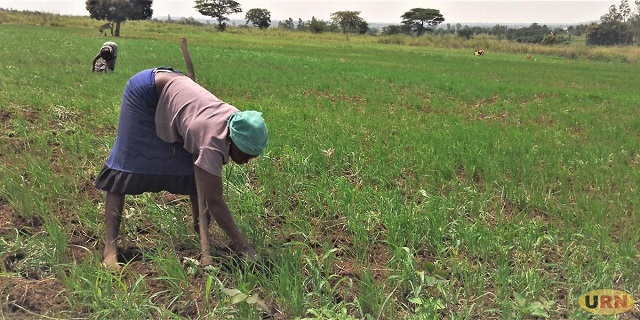
Nebbi, Uganda | THE INDEPENDENT | In response to the challenges posed by climate change and its unpredictable impact on farming seasons, Nebbi district is set to benefit from the installation of a weather forecast station.
The initiative is part of a project being implemented by the Ministry of Agriculture, Animal Industry, and Fisheries (MAAIF) in partnership with the Ministry of Water and Environment, supported by the World Bank through the Uganda Climate Smart Agricultural Transformation Project (UCSATP). This project aims to integrate climate-smart agricultural practices to help farmers navigate the risks associated with erratic weather patterns.
According to James Bataze, a senior meteorologist at the Ministry of Water and Environment, Nebbi is one of 69 districts selected for the installation of weather stations. These stations will collect data and monitor weather patterns, providing timely updates to farmers, and helping them decide which crops to plant and when to plant them. This will reduce reliance on national weather reports and ensure more localized, accurate forecasts.
Bataze added that MAAIF is procuring supercomputers to process, analyze, and generate agri-climate information, which will then be shared with farmers and other stakeholders through enhanced networking. The project will also include the installation of rain gauges at various sub-counties within Nebbi to monitor rainfall patterns and improve the timeliness of weather updates.
Joyce Piwa, the agricultural officer for Nebbi district, highlighted the difficulties farmers face in managing post-harvest handling due to a lack of access to timely weather information. She noted that many farmers still rely on traditional methods of weather prediction, which often result in significant losses due to poor timing of planting. With a functioning weather forecasting system, farmers would receive real-time updates from meteorologists, guiding them on when to plant and when to refrain from planting.
“As we continue to deal with the devastating effects of climate change on food production, weather forecasting must be prioritized if we are to implement smart agriculture practices,” Piwa stressed. “Farmers should not have to rely on assumptions about the weather.”
Jacklyn Opar, the LC III Chairperson of Thatha Division in Nebbi Municipality, pointed out that the lack of weather updates has led to apathy among farmers, some of whom have abandoned their farms, contributing to food insecurity in the region. She emphasized the importance of providing guidance on weather patterns, suitable seeds, and pesticides to ensure that farmers do not risk planting during unfavorable conditions, such as dry spells.
Opar also explained that weather forecasting is essential for predicting the atmospheric conditions in a given area at a specific time, helping farmers determine whether it is a suitable season for planting. However, she expressed concerns that farmers sometimes receive inaccurate information from meteorologists, leading to poor decision-making and financial losses.
Laverus Nyakuni, the production officer for Nebbi district, noted that the district traditionally had two planting seasons each year. However, due to the changing climate, this has been reduced to one planting season. In the past, rains would arrive around mid-February, allowing farmers to plant in the first season. Now, early planting often leads to poor harvests, as unpredictable weather patterns, such as droughts or floods, affect crop growth.
“It’s true our farmers are not being updated on climatic changes,” Nyakuni explained. “Sometimes, they plant too late or too early, and crops are either hit by dry spells or floods. If the weather forecasting station is installed, farmers would receive critical information about the planting and harvesting seasons.”
This weather forecasting initiative aims to equip Nebbi’s farmers with the necessary tools to mitigate the impacts of climate change, promoting sustainable agricultural practices and ensuring food security for the district’s residents.
*****
URN
 The Independent Uganda: You get the Truth we Pay the Price
The Independent Uganda: You get the Truth we Pay the Price



